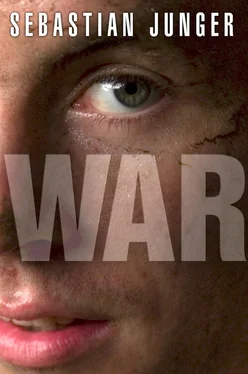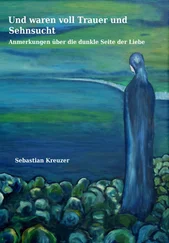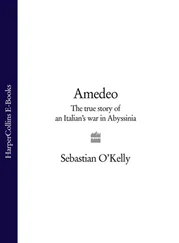S-2 is the designation for a military intelligence officer. There were a lot of soldiers around us, mostly new recruits who had just arrived in country, and by the time the sergeant got to the part about the Iranians they were giving us some pretty hard stares. Sometimes it was the new guys, the guys who’d never seen combat, who were the most hostile to any questioning of the war, the most belligerent about a supposed American prerogative. To change the subject I asked the sergeant how he would fight the U.S. military if he was an insurgent in the Korengal. He’d clearly given it some thought:
“I’d put a shooter above Vegas with a low MOA rifle and I’d take single shots to the groin,” he said. “MOA means ‘minute of angle’ — the bullet doesn’t drop more than an inch per hundred yards. Every shot sends a guy home in a helicopter. We’d get so frustrated we’d just charge up the hill. So you’d have a couple of guys to the side with machine guns. The guy with the rifle keeps shooting, and the machine guns wipe us out.”
The battalion commander was an insanely fit lieutenant colonel of Cherokee descent named Bill Ostlund who graduated from the Fletcher School of Law and Diplomacy and wrote a thesis on the Soviet military’s defeats in Afghanistan and Chechnya. Ostlund would look you straight in the eye while crushing the bones of your hand in a handshake and launch straight into, say, the latest about the new trade school in Asadabad. He had such full-on enthusiasm for what he was doing that when I was around him I sometimes caught myself feeling bad that there wasn’t an endeavor of equivalent magnitude in my own life. It wasn’t the war, per se, that he was so fired up about so much as the whole idea — a truly radical one when you thought about it — that America was actually over here trying to put a country like this back together. Not many nations have the resources to attempt a project on this scale or the inclination to try. And Ostlund was exactly the kind of guy you’d want to have do it: seemingly immune to heartbreak, way more knowledgeable than most of the press corps that came through and capable of working eighteen hours a day for fifteen months straight.
Ostlund often referred to the Taliban as “miscreants” and spoke of them in the singular, as in, “We cornered the enemy and destroyed him.” The third-person singular lent the war a vaguely gentlemanly feel, as if there were no hard feelings and all this was just an extraordinarily violent lawn sport. In fact, I don’t think Ostlund felt any particular animosity toward the men he was fighting, and I know for a fact that he made repeated offers to grant temporary immunity to any Taliban leaders who would meet with him at a local shura. (“If they put together a meeting with all my close friends, I promise they will not be detained and that I will respect the tradition that shuras are not deceitful,” he told me.) As far as I know none of them took him up on it, but I always liked that he operated that way. He was the highest-ranking officer to spend the night at Restrepo, and the men told me that instead of taking an empty bunk he just curled up on the ground and went to sleep. They said he didn’t even take off his body armor.
Ostlund’s base was Camp Blessing, which overlooked the Pech River Valley just a few miles west of the Korengal. It was a random conglomeration of brick-and-mortar buildings that climbed unevenly up a mountainside, the newest buildings at the top and still smelling of fresh cement. The market town of Nagalam was a mile to the east and boasted a “men’s club,” whatever that meant; at night something akin to Christmas lights flashed weirdly over the rooftops. Blessing was the stopping-off point for supply convoys going into the Korengal because that way they could make it in and out in a single day. (Spending a night at the KOP was suicide: there was only one road out of the valley, which gave the enemy a whole night to dig in bombs.) The convoys were called CLPs and were the responsibility of Fusion Company, which made the run up the Pech every few weeks and got attacked almost every time. A CLP was usually composed of a dozen armored Humvees and twenty or so local “jingle” trucks driven by Afghans. The road to Blessing was newly paved, which meant the convoys moved too fast to be ambushed, but the last few miles into the Korengal were dirt and considered to be the most dangerous stretch of road in the country. Army mechanics bolted a .50 cal to the top of the wrecking truck because even the salvage and repair guys were expected to return fire. I was told it was the only armed wrecking truck in the entire U.S. Army.
I manage to avoid CLPs until halfway through the tour, when a series of winter storms grounds flights for a couple of weeks. We roll out of the base on a miserable January day with high-level clouds filtering out a weak sun and the wind shrieking down off the Hindu Kush completely unchecked. The night before, Able Company had spotted twenty or thirty fighters in the Watapor Valley and wiped them out with artillery and airpower, and most of the dead turned out to be Korengalis. The morning we head out a public affairs officer takes me aside and tells me he has information that a Taliban cell in the valley knows that our convoy is coming and is going to attack it. It’s the kind of news that journalists are eager to hear as long as everything turns out okay. Of course, there’s no way to know that except to take a deep breath and find out.
I have a spot in the second Humvee of the convoy with Captain John Thyng, the commander of Fusion Company. Thyng had been hit by a roadside bomb in Iraq and seemed more or less resigned to that happening in Afghanistan as well. He sits next to the driver and I sit diagonally across from him in the back, and then there’s another soldier next to me and a gunner up in the turret with a .50 cal. I’ve been told that it will be up to me to pass him more ammo if he needs it. As soon as our wheels cross the wire the gunner racks his weapon and we grind slowly through Jalalabad and then head north on new black pavement that ribbons smoothly along the river. There are rice paddies along the floodplain and, here and there, clusters of jagged slate gravestones shoved into the ground like spades. Green prayer flags toil around them in the wind. The winter sun glances off the wide braidings of the river and makes the water look dull and heavy as mercury, and beyond that, rank after rank of mountains fall off toward the east: Pakistan. An old man stands in a field of stones watching us go by.
“The thing about the military is, every unit thinks they’re the coolest,” Thyng says as we roar past. We’re all wearing headsets so we can hear each other over the engine and communicate with the other trucks. “I mean, the BSB guys think they’re cool, but they’re obviously not. And they don’t even know it, which is the most tragic thing about that situation.”
The old man is well behind us now and we’re coming up on a police checkpoint that has been shot to pieces by previous Taliban attacks. Behind it on the river, two men paddle a crude inner-tube raft toward our shore, stroking hard into the current. Thyng grabs a pair of binoculars and glasses them as we go by.
“But in their hearts I think they know,” he adds after a while.
We reach the Korengal the morning of the following day. We’d spent the night at Blessing listening to the apocalyptic thunder of the 155s calibrating new rounds and left just after dawn so the convoy could make it out of the valley before dark. “I think we’re going to get hit today,” the driver of my Humvee says as he climbs into his seat. We jolt through Nagalam and then cross the Pech on a narrow bridge and enter the mouth of the Korengal. The road is excruciatingly narrow and if you look out the window you can see straight down to the bottom of the canyon several hundred feet below. It’s easier to just look straight ahead and think about something else. After half an hour Thyng points to a ridge up ahead and says that after we pass that, things are going to get interesting.
Читать дальше
Конец ознакомительного отрывка
Купить книгу












